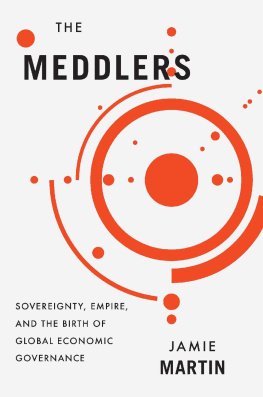The Evolution of a Nation
THE PRINCETON ECONOMIC HISTORY OF THE WESTERN WORLD
Joel Mokyr, Editor
Growth in a Traditional Society: The French Countryside, 14501815, by Philip T. Hoffman
The Vanishing Irish: Households, Migration, and the Rural Economy in Ireland, 18501914, by Timothy W. Guinnane
Black 47 and Beyond: The Great Irish Famine in History, Economy, and Memory, by Cormac Grda
The Great Divergence: China, Europe, and the Making of the Modern World Economy, by Kenneth Pomeranz
The Big Problem of Small Change, by Thomas J. Sargent and Franois R. Velde
Farm to Factory: A Reinterpretation of the Soviet Industrial Revolution, by Robert C. Allen
Quarter Notes and Bank Notes: The Economics of Music Composition in the Eighteenth and Nineteenth Centuries, by F. M. Scherer
The Strictures of Inheritance: The Dutch Economy in the Nineteenth Century, by Jan Luiten van Zanden and Arthur van Riel
Understanding the Process of Economic Change, by Douglass C. North
Feeding the World: An Economic History of Agriculture, 18002000, by Giovanni Federico
Cultures Merging: A Historical and Economic Critique of Culture, by Eric L. Jones
The European Economy since 1945: Coordinated Capitalism and Beyond, by Barry Eichengreen
War, Wine, and Taxes: The Political Economy of Anglo-French Trade, 16891900, by John V. C. Nye
A Farewell to Alms: A Brief Economic History of the World, by Gregory Clark
Power and Plenty: Trade, War, and the World Economy in the Second Millennium, by Ronald Findlay and Kevin ORourke
Power over Peoples: Technology, Environments, and Western Imperialism, 1400 to the Present, by Daniel R. Headrick
Unsettled Account: The Evolution of Banking in the Industrialized World since 1800, by Richard S. Grossman
States of Credit: Size, Power, and the Development of European Polities, by David Stasavage
Creating Wine: The Emergence of a World Industry, 18401914, by James Simpson
The Evolution of a Nation: How Geography and Law Shaped the American States, by Daniel Berkowitz and Karen B. Clay
The Evolution of a Nation
HOW GEOGRAPHY AND LAW SHAPED
THE AMERICAN STATES
Daniel Berkowitz and Karen B. Clay

Copyright 2012 by Princeton University Press
Published by Princeton University Press, 41 William Street, Princeton, New Jersey 08540 In the United Kingdom: Princeton University Press, 6 Oxford Street, Woodstock, Oxfordshire OX20 1TW
All Rights Reserved
Library of Congress Cataloging-in-Publication Data
Berkowitz, Daniel.
The evolution of a nation : how geography and law shaped the American states / Daniel Berkowitz and Karen B. Clay.
p. cm.(Princeton economic history of the western world)
Includes bibliographical references and index.
ISBN 978-0-691-13604-2 (hardcover : alk. paper) 1. U.S. statesPolitics and government. 2. State governmentsUnited StatesHistory. 3. LawUnited StatesStatesHistory. 4. U.S. statesEconomic conditions. I. Clay, Karen B. II. Title.
JK2408.B469 2012
320.473dc22
2011014585
British Library Cataloging-in-Publication Data is available
This book has been composed in Times
Printed on acid-free paper.
press.princeton.edu
Printed in the United States of America
10 9 8 7 6 5 4 3 2 1
Dan: To Martha, Sam, Hannah, with love and thanks
Karen: To the Mowry men, Todd, Connor, Davis, and Grant
Contents
CHAPTER ONE
Introduction
CHAPTER TWO
Legal Initial Conditions
CHAPTER THREE
Initial Conditions and State Political Competition
CHAPTER FOUR
The Mechanism
CHAPTER FIVE
State Courts
CHAPTER SIX
Legislatures and Courts
CHAPTER SEVEN
Institutions and Outcomes
Acknowledgments
TWO EVENTS STARTED US DOWN THE PATH that has led to this book. The first was a long discussion with Ed Glaeser about his paper on legal origins in England and France during a lunch for the Carnegie Mellon UniversityUniversity of Pittsburgh applied microeconomics workshop. The second was an equally long and stimulating discussion over breakfast with Stan Engerman where we discussed legal origins in the American states.
Our editor, Joel Mokyr, challenged us to write a book that the union of economists, historians, legal scholars, and political scientists can read. We hope we have risen to that level. Joels careful reading and thoughtful prodding helped us clarify our arguments and presentation. Joel was aided by two anonymous reviewers who offered detailed and constructive comments on two complete drafts. While Joel and the reviewers worked much harder than anyone should expect, we take full responsibility for any of the shortcomings in this book.
We owe large personal and intellectual debts to scholars working at the intersection between economics, history, law, and politics, including Daron Acemoglu, Lance Davis, Stan Engerman, Avner Greif, Doug North, Katharina Pistor, Gerard Roland, Andrei Shleifer, Ken Sokoloff, and John Wallis. This project has benefited from the many comments we received from James Anderson, Martha Banwell, Ed Berkowitz, Hannah Berkowitz, Sam Berkowitz, Hans Bernd-Schafer, Dan Bogart, Eric Brousseau, Mehmet Caner, Ken Chan, Chris Connelly, Patrick Conway, Vivian Curran, Dave DeJong, Melissa Dell, Ying Fang, Lawrence Friedman, Robert Gordon, Amalia Kessler, Dan Klerman, George Krause, Todd Mowry, Baozhi Qu, Sam Rittenberg, Mel Stephens, Robert Strauss, Werner Troesken, and Randy Walsh.
We have also greatly benefited from the comments of seminar participants at the National Bureau for Economic Research workshop on the American economy, 2003; the Heinz School at Carnegie Mellon, 2003; the Indiana University Economic History Seminar, 2004; Carnegie Mellons Political Economy reading group, 2004; the Allied Social Science Association Meetings in 2005 and 2008; the International Society for New Institutional Economics, 2006 and 2009; the American Law and Economics Association Meetings, 2007; the Christian A. Johnson Economic Enrichment Fund Lecture at Middlebury College, 2007; North Carolina State University, 2007; University of North Carolina at Chapel Hill, 2007; the Workshop on Law and Institutions at the School of Oriental and Asian Studies of the University of London, 2007; the Law and Institutions workshop sponsored by University of Paris in 2007; the University of Pittsburgh Law School, 2008; Xiamen University, 2008; the European Society for New Institutional Economics, 2008; Tsinghua University, 2008; Lingnan University, 2008; the Chinese University of Hong Kong and City University of Hong Kong Joint Symposium on Institutions; Finance and Economic Development, 2009; the City University of Hong Kong, 2009; the Chinese University of Hong Kong, 2009; University of California, Irvine, 2009; Stanford Law and Economics Lunch, 2009; Economic History Association, 2009; and the Conference on Empirical Legal Studies, 2009. Karen Clay thanks Stanford Law School for its hospitality and support during the 20082009 academic year. Daniel Berkowitz thanks the City University of Hong Kong for its hospitality and support during the fall of 2009.
This book would not have been possible without a number of people who provided practical assistance. John Curry of the Census Bureau spent a great deal of time explaining state government budget data, and Eileen Kopchik spent many hours helping us download, merge, and understand the many data sets we have used. Lauree Graham spent many hours assembling data sets and typing in text and data. Amanda Gregg and Jeff Lingwall also provided capable research assistance, and Gary Franko did yeomans work on the maps. At various points, Oliver Davies, Rose Goff, Gerrie Halloran, Gretchen Hunter, Joseph Plummer, and Elizabeth Thomas provided capable editorial assistance. Our production editor, Lauren Lepow, was indispensable in bringing this project to completion.
Next page









